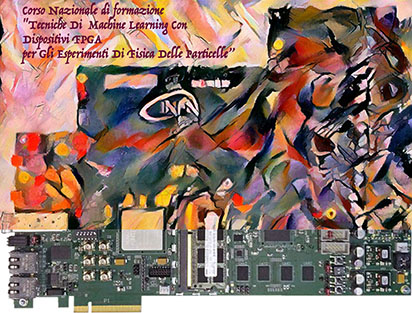Tecniche Di Machine Learning Con Dispositivi FPGA per Gli Esperimenti Di Fisica Delle Particelle
AULA BP- 2B
Infn

The course aims to provide the state of the art on the implementation of Machine Learning (ML) and Deep Learning (DL) techniques in FPGA-type devices in particle physics applications, and to help spread the related know-how. Within INFN, also contributing to increase it thanks to contributions from experts in the field outside the institution.
This course aims to illustrate how ML techniques can be implemented in FPGA devices from a dual point of view. First, the course will focus on the technological aspect: the software and hardware tools available on the market will be presented and development methodologies will be illustrated, discussing practical cases. Secondly, the course will show the state of the art of ML applications on FPGAs within the particle physics community through the analysis of concrete cases and examples of applications (of varying complexity). The course will stimulate and encourage discussion among participants on the current advantages and disadvantages and on the future potential of the different technologies and on the different tools in relation to the individual use cases considered.
